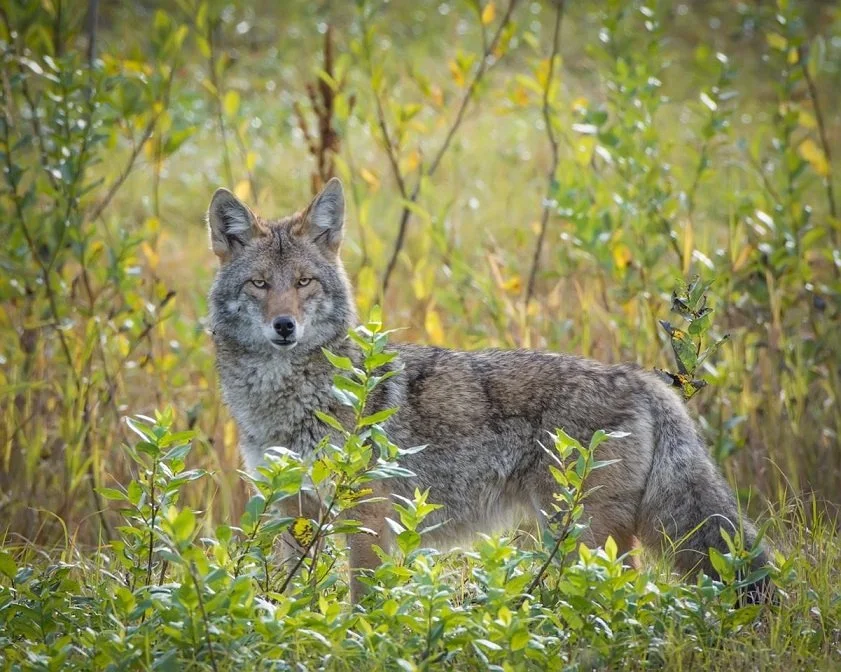Wildlife expert to discuss coexisting with the Eastern coyote
March 12, 2022 | By Waterbury Roundabout The Eastern coyote is the topic of a presentation March 22 at the Waterbury Public Library. Courtesy photo
We hear them and sometimes see them. They live near us close to our homes, yards, and fields. Should humans fear the Eastern coyote, or can we co-exist and even appreciate them?
With its signature howl and its proximity to humans, the Eastern coyote is the most persecuted carnivore in North America. And despite human efforts to eradicate it, it survives and thrives among us.
The Waterbury Public Library hosts a special program Tuesday, March 22, at 6:30 p.m. in person featuring guest speaker Chris Schadler, co-founder of the New Hampshire Wildlife Coalition and coyote expert.
Although she focused on wolf recovery earlier in her career, Schadler turned her attention to the Eastern coyote when she and her flock of sheep moved to New England. She is now the New Hampshire and Vermont representative for Project Coyote, a national organization promoting human coexistence with coyotes. Her work with the NH Wildlife Coalition seeks to broaden public understanding and input into wildlife decision-making.
Schadler will talk about ways people can learn to live alongside the Eastern coyote with a presentation that will touch on the myths and misunderstandings surrounding this creature. Schadler will show how by understanding coyote life cycles, we can learn to co-exist with this wild dog, and even come to appreciate the coyote for its resilience, intelligence, and even beneficence.
Schadler’s interest in wild canids began in the 1970s as a volunteer at the Wolf Park in Battleground, Indiana. Later she earned her master’s degree in Conservation Biology at Antioch University in Keene, New Hampshire, where she wrote a thesis on the Natural Recovery of the Eastern Timber Wolf in Michigan. In the 1980s, she lived in Michigan and Minnesota where she did research on the gray wolf and began her speaking career. In the 1990s she returned to New England where she has taught Forestry, Wolf Ecology, and Environmental Conservation at the University of New Hampshire.

